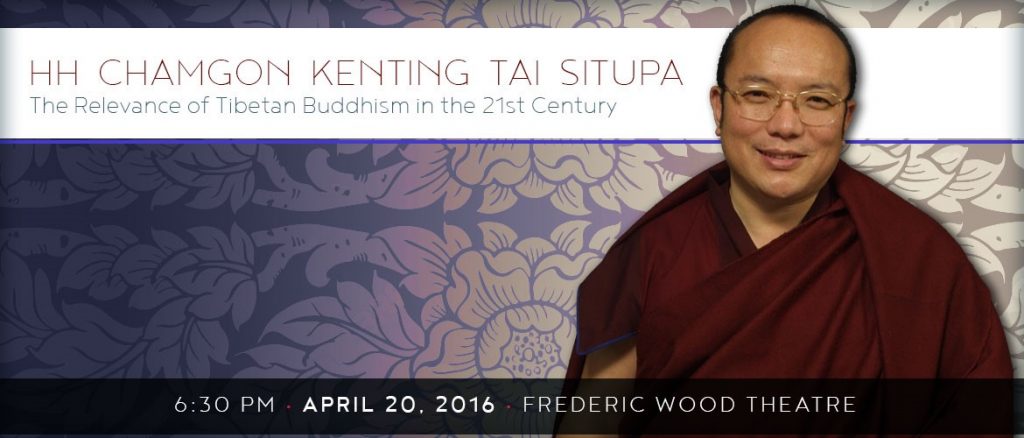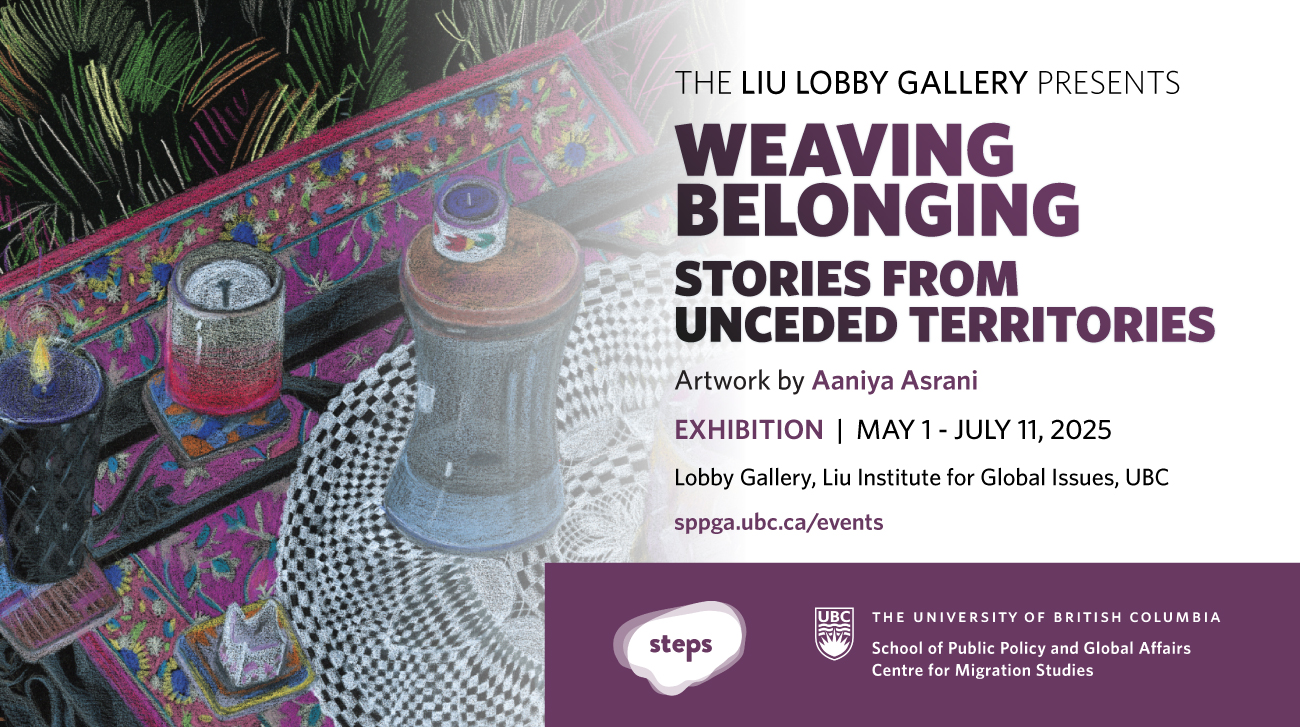Please note that this is a ticketed event.
Abstract:
In the 21st century, as in past centuries ever since the enlightened Buddha agreed to teach, what is today known as Tibetan Buddhism challenges those choosing this path to examine how we can engage our minds and bodies, so that our lives become meaningful and purposeful. The essence of this path transcends time and place, as it is based on training and taming one’s mind, in order to eventually recognize its primordially perfect nature. It offers an opportunity to become thoroughly familiar with how our emotions, based on dualistic perceptions of self and other, result in varying degrees of unpleasant experiences, or suffering. Tibetan Buddhism clearly indicates how it is possible to enhance and change human relationships for the better in this 21st century, both in daily personal encounters and, indeed, worldwide.
Bio:
His Holiness Chamgon Kenting Tai Situpa is an incarnate lama in a line of great masters that began with the enlightened translator of Tibet, Marpa Lotsawa (1013-1097). The 12th Chamgon Kenting Tai Situpa Pema Donyo Nyinje was born in Tibet to a family of farmers. He was recognized and enthroned at the age of 18 months, according to the Palpung monastic tradition. The political hostilities at the time forced the child lama to move to Bhutan and later to India in 1959 at the age of 6. He received novice monk vows at the age of 13, and full ordination at age 20 from His Holiness the 16th Gyalwang Karmapa.
The Tai Situpa incarnations have had a very close connection with the Karmapas since the 12th century: from one lifetime to the next, they have alternated as teacher and disciple. At the age of 22 years His Holiness Chamgon Kenting Tai Situpa founded his own monastic institution, Palpung Sherab Ling at Baijnath, Himachal Pradesh, India which has now grown into a leading Tibetan Buddhist institution with about 1200 resident monks and nuns and several hundred others who study and practice Buddhism in a traditional monastic environment in a beautiful pine forest landscaped to protect and preserve the environment.
Since 1981, His Holiness Chamgon Kenting Tai Situpa has traveled widely in North America, Europe, Southeast Asia and New Zealand lecturing on Buddhist philosophy and meditation. In 1989 he led the “Pilgrimage for Active Peace “to inspire people to take an active involvement in world peace. A renowned scholar, poet, artist, calligrapher, architect, and geomancer, His Holiness speaks fluent English and is the author of over 40 books, includingUltimately Perfect, in which he illuminates Buddhist teachings in commonsense terms using down-to-earth examples. He is currently involved in the advancement of interfaith and intercultural humanitarian efforts.
http://buddhism.arts.ubc.ca/2016/05/06/talk-by-hh-chamgon-kenting-tai-situ-may-15/
Sponsor: The Robert H. N. Ho Family Foundation Program in Buddhism and Contemporary Society
Place: Frederic Wood Theatre, 6354 Crescent Rd
By: HH Chamgon Kenting Tai Situpa
Type: Seminar
UPDATE: As the Frederic Wood theatre sold out very quickly, we are happy to announce that HH Chamgon Kenting Tai Situpa’s talk will be simultaneously broadcaste to the Franklin Lew Forum in Allard Hall at UBC. Please click here to RSVP and secure a ticket at the Franklin Lew Forum.


